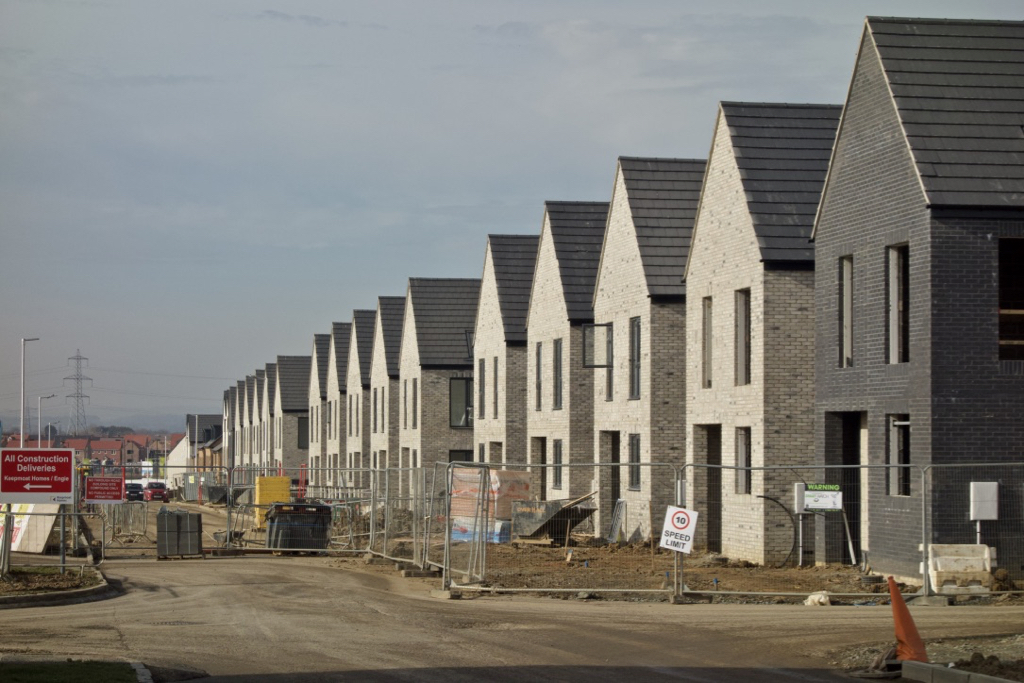
Now the Party begins . . .
Labour’s inevitable election triumph creates an opportunity for the government to address the most important social issue of the day – the acute shortage of housing, especially for younger people, which has bedevilled the country for decades, writes Paul Finch.
Will the policies announced or hinted at re-election achieve the desired result – an additional 1.5 million homes over the next five years?
On the face of it, this is unlikely if not impossible. The idea that ‘bulldozing’ the planning system will produce the necessary result suggests a wilful disregard for the consequences of smashing things up, and a failure to understand what is involved in actually delivering (as opposed to talking about delivering) housing at scale.
Successive administrations have fiddled and tinkered with planning, always with the contradictory aims of more consultation and greater speed. This has had no effect on housing delivery numbers. Labour’s love affair with the Create Streets organization, which pretends that if only beauty were the guiding principle behind development, then planning permissions would flow in an endless stream, will not result in extra delivery. Aesthetic lobbying is no substitute for construction. The word ‘beauty’ should be removed from public policy documents because it is not defined. It should be replaced by ‘well designed’, ‘good quality’, or ‘high quality’ as appropriate.
Equally doomed is the notion that creating new towns is a panacea for shortage. Do you remember Labour’s eco-town initiative? Can anyone point to significant housing achievement as a result of that initiative? Neither can I.
The point about new towns, as opposed to big developments, is that they take up to 20 years to create, during which time it makes little sense to start building homes surrounded by infrastructure work. Michael Gove suggested earlier this year that he would create multiple development corporations , which can operate more speedily than fully-fledged new towns. But this conversion to public sector-led initiatives was a tissue-thin response to Conservative nimbies, who brought to a halt their party’s support of other ‘socialist’ measures like housing targets. Labour will bring these back. Good.
There are other potential pluses for Labour as they contemplated the wreckage of Conservative housing policy. For a start, things can only get better, to coin a phrase. The sensible decision to have a review of Green Belt land, provided it is speedy, light touch and aimed at enabling, could be a positive.
Support for the small but increasing number of local authorities directly procuring new homes will no doubt continue (it started politically with the Kate Barker housing review commissioned by Gordon Brown, and she has just produced a follow-up report noting that few of her recommendations have been adopted). You might expect a Labour government to give council housing – a Barker recommendation – a really big push, but there is the question of how it is to be funded. These days, governments seem to need a proxy to help or persuade others to get building, rather than a body (for which read Homes England) getting directly involved in procurement of sites, design and overall project management. We know how to do this – look at the good work of the Olympic Delivery Authority in respect of the Olympic village at Stratford.
Are there other potential policies the new government might consider, especially if they are low-cost?
A quick win would be to bring back penal surcharges and electoral disqualification for councillors who block planning permissions by the deliberate unreasonable rejection of the professional advice of officers. Currently there is a licence to be irresponsible. Ditto the lack of moral hazard in individuals blocking significant development via judicial review, which puts the latter at very little financial risk.
On a more positive note, what about a programme you might call ‘homes without construction’? There are vast numbers of empty properties, including potential dwellings above shops, around the country (including London). These might be brought into use with appropriate taxation sticks and carrots. Revaluation for council tax purposes, heavily upwards, would be one way of encouraging owners of multiple unused-bedroom properties to either let them out or down-size. The leverage effect of downsizing should not be under-estimated.
Letting properties is, however, unlikely to continue under this government, especially since the Conservatives’ recent attack on landlords was criticised by Labour for not going far enough. A rethink on this might pay delivery dividends. Pragmatism about brining property into use should outweigh Labour’s traditional attitude to property owners, which is one of intense dislike – except where owners are rentier Labour MPs.
Labour wants to be the party that supports housebuilders, which it will not be by smashing up planning. Instead it should refine or eliminate policies that block or delay delivery. The more you use complex design codes, phoney net-zero measures, outlandish cycle requirements, bio net gain, planning gain negotiations etc, the more you squeeze out smaller builders. The big boys will go their own way – so if you are reliant on them to building you social programme, you are dependent on the wrong people. In the end they build for the market in the same way that bakers produce bread.
A good starting point for the new government would be to avoid focussing on failure, instead analysing examples of success at scale, past and recent. Post-1945 housing production peaked in both private and public sectors in 1968. I seem to remember we had a Labour government.
A final point: the government will need to respond to the findings of the Grenfell Inquiry, the final report from which will be published in September. That will be a sobering task which should be supported by politicians across the political spectrum.
Founder Partner






